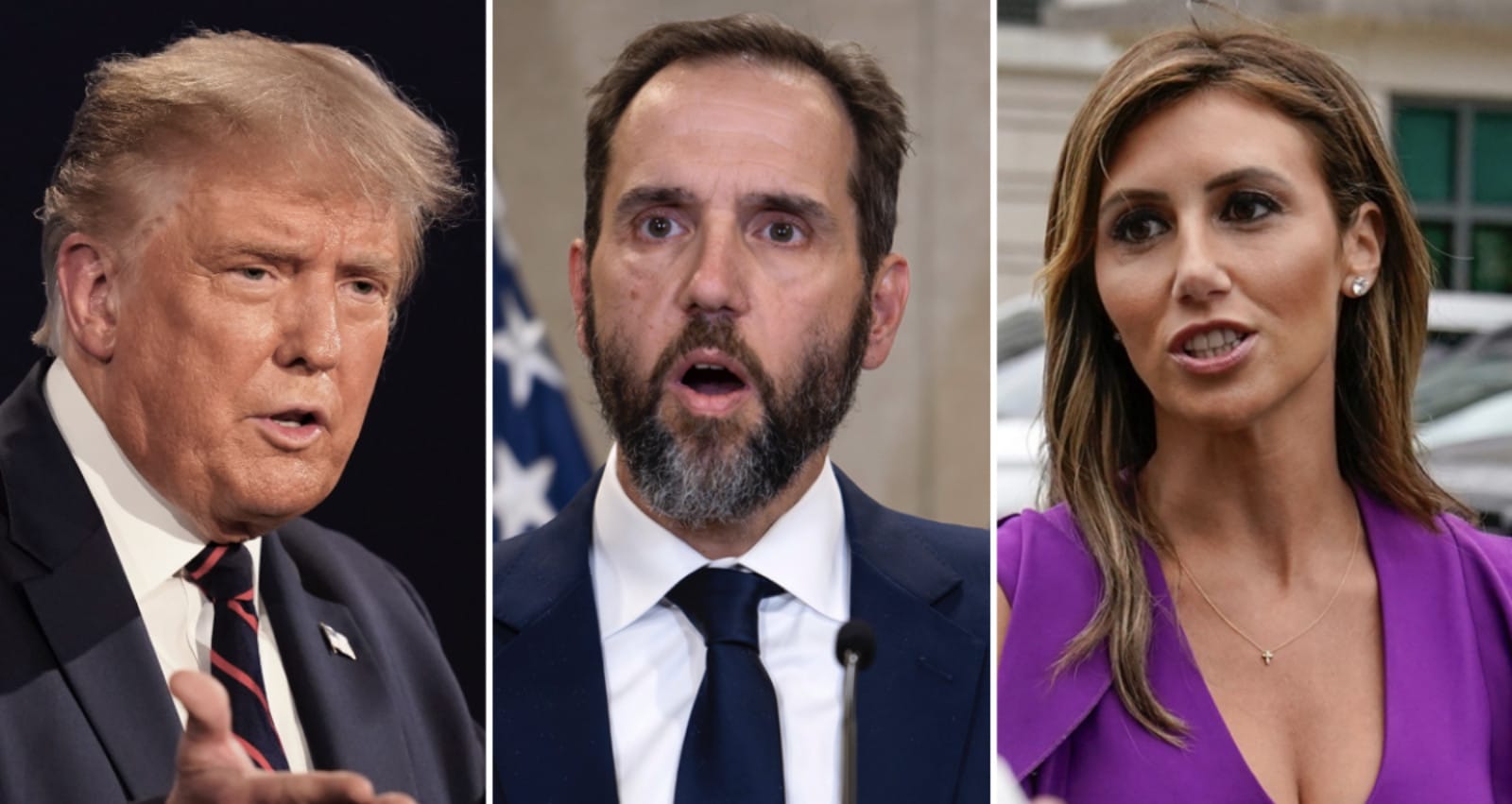OPINION: This article may contain commentary which reflects the author's opinion.
The D.C. Court of Appeals suggested on Tuesday that it may consider the constitutionality of special counsel Jack Smith’s appointment as well as other issues, including the timing of former President Donald Trump’s presidential immunity appeal.
The court issued an order on Tuesday, instructing parties to be ready to address “discrete issues” raised in amicus briefs during the oral arguments on January 9, the Daily Caller reported. The upcoming arguments pertain to Trump’s attempt to dismiss his 2020 election case based on presidential immunity.
Some of the briefs challenge the constitutionality of Smith’s appointment, while others argue that Trump should only raise the immunity challenge after a conviction and trial, the outlet noted.
Edwin Meese III, a former U.S. Attorney General, along with law professors Steven Calabresi and Gary Lawson, submitted an amicus brief contending that there is no statute or constitutional provision that empowers the AG to appoint “a private citizen to receive extraordinary criminal law enforcement power under the title of Special Counsel.”
“Not properly clothed in the authority of the federal government, Smith is a modern example of the naked emperor,” they wrote in their brief. “Illegally appointed, he has no more authority to represent the United States in this Court, or in the underlying prosecution, than Tom Brady, Warren Buffett, or Beyoncé.”
NEW: We just filed an amicus brief in the Trump election interference case, arguing that the D.C. Circuit lacks jurisdiction to hear Trump’s appeal on his immunity claims. https://t.co/Tcw1WKHsrP
— American Oversight (@weareoversight) December 29, 2023
Meanwhile, the group American Oversight submitted a brief asserting that Trump’s appeal for immunity is premature, arguing that, according to Supreme Court precedent, a criminal defendant cannot raise an immunity claim before conviction unless there is an explicit statutory or constitutional guarantee that a trial will not take place.
“The law is clear: Mr. Trump cannot appeal his immunity defenses until after he is tried and convicted,” Arnold & Porter partner Stanton Jones said in a statement. “He should not be allowed to use an improper appeal to delay the scheduled March trial.”
The Daily Caller noted further that sixteen former government officials and constitutional experts, including former Associate Counsel to President George W. Bush, Brad Berenson, and Olivia Troye, former Homeland Security and Counterterrorism Special Advisor to Mike Pence, filed a brief arguing Trump’s position “cannot be squared with the Constitution’s text or history.”
“The immunity he seeks would severely impair the ability of the current President, in whom all executive powers are vested, see U.S. Const. art. II, § 1, cl. 1, to take care that Congress’s laws proscribing obstruction of federal elections are faithfully executed,” they wrote. “And by asking the Judicial Branch to fashion a sweeping atextual immunity from whole cloth, he draws the Judiciary and the Executive into conflict.”
Last week, the Supreme Court rejected Smith’s appeal to hear Trump’s immunity claim before it is heard by the appeals court. Also, the federal judge overseeing his Jan. 6 ‘election interference’ case, Tanya Chutkan, rejected Trump’s request to throw out his case on the same claim in a Dec. 1 ruling.
But Chutkan has paused Trump’s trial, originally scheduled to begin March 4, ruling, in part, that her order “automatically stays any further proceedings that would move this case towards trial or impose additional burdens of litigation on Defendant.”
The Hill reported: “Trump last week appealed an order from Chutkan that rejected his motion to dismiss the Jan. 6 case, likewise asking that she halt activity in the case while his appeal proceeds. The move comes as Trump has argued the courts should dismiss the case both on the concept of presidential immunity, as well as on constitutional grounds, including the First Amendment.”
“If jurisdiction is returned to this court, it will—consistent with its duty to ensure both a speedy trial and fairness for all parties—consider at that time whether to retain or continue the dates of any still-future deadlines and proceedings, including the trial scheduled for March 4, 2024,” wrote Chutkan in her order.
